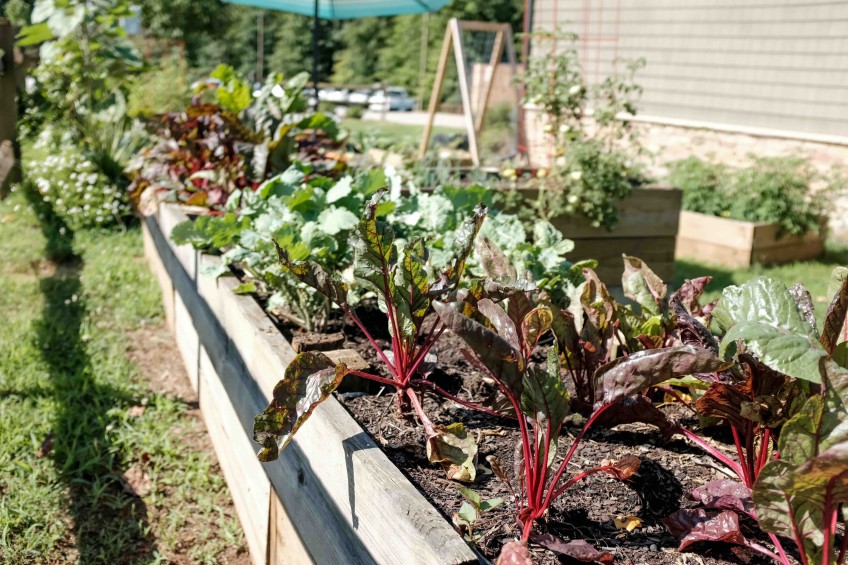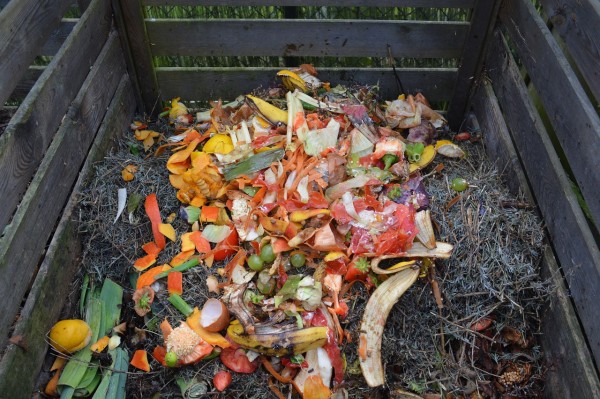
How to become a hopeless gardener
The catalyst that drives us into the garden is different for everyone. It could be your mind drifting to thoughts of how you might survive in a post-fossil fuel world and realising, with mild panic, that you do not have any tradable skills or knowledge. Knowing Photoshop won’t help you now. Maybe you’ve imagined a Queenstown-Lakes cut off from Gisborne citrus fruit, Canterbury potatoes and Northland avocados or recalled supermarket shelves stripped bare of seed packets during lockdown shopping trips?
If it’s not food security sending you into the garden, there’s always aspiration. Follow the beatific young gardeners on social media plucking sun-ripened tomatoes in linen overalls; bouncing a baby in one tanned arm while holding out a handful of coloured heritage corn kernels in the other. Read an article about gut health or mental health and learn how digging in soil is a great way to both diversify your microbiology and calm the mind.
Or just look at your supermarket docket and think wtaf.
However you arrive in the garden, chances are you’re here to stay.
You’ll stop spending your social capital at work on asking colleagues about their weekend. Stir that gritty instant coffee quickly and head straight to the known gardeners, the older folk, whose parents gardened too and who tell you things like “rosemary does best where it can smell the sea” and “water deeply but infrequently to encourage roots to run deep”. Nod knowingly when they tell you to wait until the last of the snow has melted from Cecil Peak to plant your tomatoes, and take notes about when they planted their beans.
Buy one of those little red Warwick notebooks. In it, start a gardening diary where you can leave unhinged notes to your future self about all the things you did wrong in spring and in-jokes about the bones from your trenched bokashi rising up through your soil, again.
In the same way that people who are very into social media see everything as content, take the perspective that everything is compost. You will gross out your household by leaving bags of hair on the kitchen table collected from the local hairdresser. “It’s for the worm farm, they actually love the keratin!” you’ll say. Beg for the neighbour’s guinea pig poops, those nourishing little bullets of nitrogen and microorganisms. On autumn dog walks, start carrying a sack: those well-trodden chestnut leaves in the park will make excellent leaf mould one day.
You used to gag at the smell of compost — but wait until you smell a soured bokashi bin. Expect to feel itchy at the thought of how much food waste goes to landfill. This feeling can only be soothed by importing other people’s rubbish. Join the Compost Collective and soon strangers will start dropping buckets of their acrid coffee grounds and old banana skins by your letterbox.

Gross your family out by keeping scraps for compost (Image: Pixabay).
Everywhere you look you see potential no-dig garden beds. You’ll tsk disapprovingly at the lawn porn spreading through the neighbourhood, stunting the biodiversity with its monocultural root mats – and barely restrain yourself from returning in the night to chuck layers of cardboard and homemade compost on top, like a character from Birnam Wood.
Days, hours — they no longer matter. You think in seasons now. Pay attention to the moon, read about the maramataka and watch the garden like a kahu. In spring you’ll get so heavily into the flow of pulling, raking, bunching and digging that four hours will pass. Your family will learn to wave before approaching so you don’t pass out from the jump scare. In autumn you’re going to spend cold nights picking slugs off your lettuces and sizzling them in a bucket of salty water, so get a head torch if you don’t have one.
Be prepared for pain. What you suspect to be an irritation from tomato plants will instead turn out to be some kind of chemical burn from the comfrey that you brazenly shredded up with bare legs and arms in the heat of summer. In the evenings your lower back will almost always ache and your fingernail beds will sing with the toil of the day.
But equally, be prepared for beauty and bounty. Every flower is more beautiful when you’ve grown it. You’ll heave armfuls of rhubarb into the arms of visitors and stash baggies of raspberries in the freezer to enjoy on the shortest, frostiest day of the winter. The tomatoes will taste nothing like the bland mush you buy from the supermarket duopoly and your fresh herbs will transform a few canned cupboard ingredients into something marvellous.
And finally: always be prepared to take a cutting.
Main image (Unsplash/Jonathan Hanna)





























